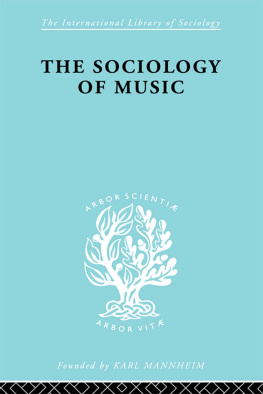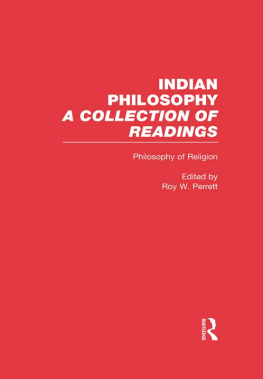The Sociology of Religion, Part 1: Established Religion
Here you can read online The Sociology of Religion, Part 1: Established Religion full text of the book (entire story) in english for free. Download pdf and epub, get meaning, cover and reviews about this ebook. year: 2010, publisher: Routledge, genre: Art. Description of the work, (preface) as well as reviews are available. Best literature library LitArk.com created for fans of good reading and offers a wide selection of genres:
Romance novel
Science fiction
Adventure
Detective
Science
History
Home and family
Prose
Art
Politics
Computer
Non-fiction
Religion
Business
Children
Humor
Choose a favorite category and find really read worthwhile books. Enjoy immersion in the world of imagination, feel the emotions of the characters or learn something new for yourself, make an fascinating discovery.

The Sociology of Religion, Part 1: Established Religion: summary, description and annotation
We offer to read an annotation, description, summary or preface (depends on what the author of the book "The Sociology of Religion, Part 1: Established Religion" wrote himself). If you haven't found the necessary information about the book — write in the comments, we will try to find it.
Unknown: author's other books
Who wrote The Sociology of Religion, Part 1: Established Religion? Find out the surname, the name of the author of the book and a list of all author's works by series.
The Sociology of Religion, Part 1: Established Religion — read online for free the complete book (whole text) full work
Below is the text of the book, divided by pages. System saving the place of the last page read, allows you to conveniently read the book "The Sociology of Religion, Part 1: Established Religion" online for free, without having to search again every time where you left off. Put a bookmark, and you can go to the page where you finished reading at any time.
Font size:
Interval:
Bookmark:


In 8 Volumes
| I | The Economic Order and Religion | Knight et al |
| II | Islam and the Integration of Society | Watt |
| III | Religious Behaviour | Argyle |
| IV | The Sociology of Religion Part One: Established Religion | Stark |
| V | The Sociology of Religion Part Two: Sectarian Religion | Stark |
| VI | The Sociology of Religion Part Three: The Universal Church | Stark |
| VII | The Sociology of Religion Part Four: Types of Religious Man | Stark |
| VIII | The Sociology of Religion Part Five: Types of Religious Culture | Stark |
Established Religion

by Routledge
by Routledge
2 Park Square, Milton Park, Abingdon, Oxon, OX14 4RN
or
270 Madison Avenue, New York, NY 10016
A CIP catalogue record for this book is available from the British Library
ISBN 978-0-415-17588-3 (hbk)
ISBN 978-0-415-60556-4 (pbk)
The Sociology of Religion: 8 Volumes
ISBN 978-0-415-17823-5
The International Library of Sociology: 274 Volumes
ISBN 978-0-415-17838-9
The publisher has gone to great lengths to ensure the quality of this reprint but points out that some imperfections in the original may be apparent
Font size:
Interval:
Bookmark:
Similar books «The Sociology of Religion, Part 1: Established Religion»
Look at similar books to The Sociology of Religion, Part 1: Established Religion. We have selected literature similar in name and meaning in the hope of providing readers with more options to find new, interesting, not yet read works.
Discussion, reviews of the book The Sociology of Religion, Part 1: Established Religion and just readers' own opinions. Leave your comments, write what you think about the work, its meaning or the main characters. Specify what exactly you liked and what you didn't like, and why you think so.




